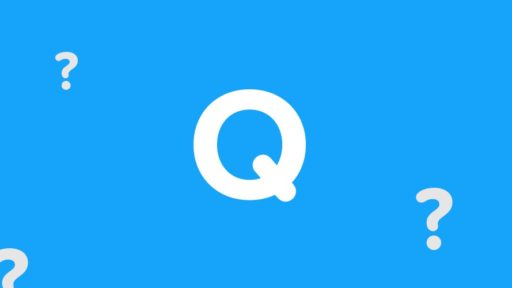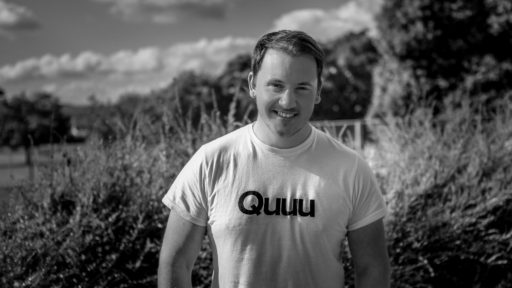Imagine spending an entire year building a product, only to delete the whole thing. For Quuu, 2018 began with so much promise, but ended with us scrapping everything we’d worked on to start again.

Back in January last year, we were in a very good position and business was looking great! Quuu users connected to either their Buffer or HubSpot accounts to receive our daily suggestions, so the logical business move was for us to create our own scheduler. This would mean we were no longer entirely reliant on third party APIs.
It was a big step forward for Quuu. We knew all of our customers used a scheduler, we knew some users created Buffer or HubSpot accounts just so they could use Quuu, so it made total sense to build our own.
Little did we know that Twitter was planning some major policy changes that would seriously hinder our new scheduling tool. Literally one week before our new launch, Twitter changed the rules around its automation policy. This meant we suddenly needed to make some massive changes just before our big launch.
With all the new changes, the Quuu scheduler was nowhere near as powerful as it was, and therefore our launch was rather flat. Over time, though, people grew to like it and even pay for it; so we stuck with it, despite all the Twitter problems that were out of our control.
At this point (around July) things on the Twitter front were quiet, so at last we thought we’d made it through the bad times. Unfortunately, this was just the beginning and we found ourselves facing even more challenges:
- Facebook removed API access to user profiles
- Facebook restricted our access to Groups (this took 4 months to clear up)
- A Buffer data migration caused all 35000+ Quuu users to lose authentication, so we were unable to send suggestions and lost $6k in MRR from Quuu Promote due to lack of shares. The team at Buffer were, as always, incredibly helpful and we worked together to fix the problem.
- Twitter restricted posting access to 300 every 3 hours (we were sending much more than this from our scheduler, so this was a major issue).
All of these problems were, of course, out of our control. But our biggest problem, the competition, wasn’t. And this is where we fucked up.
We unwittingly entered Quuu into a HUGELY competitive market. While trying to sell our scheduling tool, we lost sight and focus on what Quuu does well: providing quality content suggestions. This diluted our marketing message, meaning it was harder for potential customers to understand how we could help them. It meant paid acquisition was more expensive, landing page conversions were much lower and, ultimately, we weren’t growing anywhere near as fast as the previous year.
Something had to change.
Just after Christmas, Matthew and I met up in a cosy café in Tavistock to discuss our next steps. We laid out a few options and discussed in great detail the pros and cons of each one. What was glaringly obvious was that we couldn’t continue in the same vein in 2019.
Content!
Quuu is all about the content; it is what made us, it is in our blood, and it is what will save us. Quuu helps to extract the best content online. Finding, organising and sharing content is a time-consuming process, so by automating that with Quuu, our users can save hours a day.
We made the decision to remove our scheduler entirely so we could once again focus solely on content.
I set to work on a new design and one month later we had soft-launched the new dashboard (minus the social media scheduling tool) to our existing users.
Check out the new Quuu here.
What we learned at Quuu in 2018
Last year was a massive lesson for us, as founders. The potential of building our own scheduler was massive, but it distracted us from why Quuu was so popular in the first place. We needed to simply improve our existing service, not add to it.
If you’re a startup founder, it is so tempting to add features here, there and everywhere. You think it’s what your users would love and sometimes your users even tell you that’s the case.
You should listen to your customers, but sometimes you need to ignore what they ask for.
Users sign up for Quuu because we provide the very best hand-curated content in over 500 topics – and that should remain our one and only focus.
Focus was what we lost in 2018, building the wrong features and alienating ourselves from integrations with other companies. It is so easy to look back at the decisions we made and wonder why, but at the time they seemed like the right things to do.
2019 brings clarity to our mission and we already have so much exciting stuff planned: 9 potential integrations, a deal running in March with a large marketing partner, and Product Hunt launches.
This launch isn’t just about a new dashboard, it’s about our story. We’ve learned a lot from our decisions, and I hope it can help other startup founders provide clarity for their own users.
Here’s an accurate video representation of the Quuu team going into 2019.
What do you think of the new Quuu?





